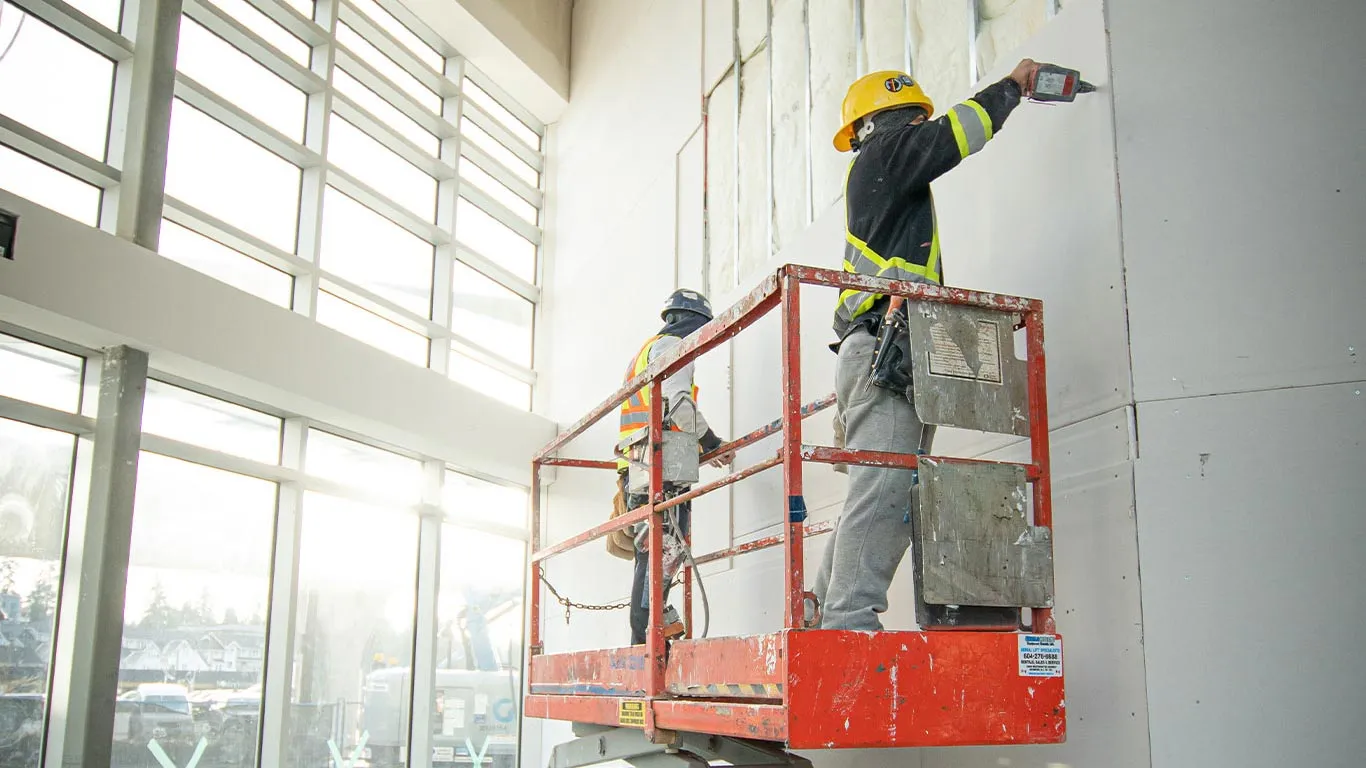
How to Manage Large-Scale Drywall Projects Efficiently in Industrial Settings
Managing large-scale drywall projects in industrial settings can be a complex process involving tight deadlines, multiple stakeholders, and unique challenges. From selecting the right materials to ensuring regulatory compliance, efficiency is key to successfully delivering high-quality results on time and within budget. This blog provides a guide to managing these types of projects effectively, focusing on key strategies to streamline processes, reduce delays, and enhance overall productivity.
1. Comprehensive Planning and Scheduling
The foundation of any successful large-scale drywall project in industrial settings begins with thorough planning and scheduling. This involves understanding the project scope, identifying potential challenges, and allocating resources appropriately. Using project management software can help track progress, manage timelines, and ensure that all team members are on the same page.
A detailed schedule should include critical milestones, delivery timelines for materials, labor allocations, and buffer time for unforeseen issues. Additionally, coordinating with other contractors on-site, such as electrical and HVAC teams, is essential to avoid overlap and minimize downtime.
2. Material Procurement and Logistics Management
For large-scale industrial drywall projects, material procurement can be a major factor in the project’s overall efficiency. Ensuring that the correct types and quantities of drywall are available at the right time can prevent costly delays. It’s important to work with reliable suppliers who understand the specific needs of industrial projects and can deliver materials promptly.
In many cases, ordering materials in bulk can lead to cost savings, but storage must be planned accordingly to avoid cluttering the job site. Proper logistics management ensures that materials are stored in an organized manner, accessible when needed, and kept in good condition to avoid damage.
3. Efficient Labor Management
Managing labor on large-scale drywall projects requires balancing efficiency with quality. Having the right number of skilled workers on-site at the right time is critical. Overstaffing can lead to inefficiencies and added costs, while understaffing can delay progress and lower the quality of work.
Training workers in specialized drywall techniques and safety protocols ensures consistency across the project. Efficient labor management also involves clear communication between team leaders, supervisors, and the on-site crew, ensuring everyone is aware of daily tasks and expectations.
4. Use of Advanced Drywall Technologies
Leveraging modern drywall technologies can significantly increase efficiency in large-scale industrial projects. For instance, using pre-fabricated drywall panels can speed up installation and reduce labor hours. Modular drywall systems, which are designed for quick and easy installation, can be particularly beneficial in industrial settings where large areas need to be covered quickly.
In addition to these physical technologies, project management tools that provide real-time updates on progress can help streamline operations. These tools offer transparency across teams and allow project managers to identify and address issues early before they become major delays.
5. Focus on Safety and Compliance
Industrial settings often come with unique safety challenges, making compliance with safety regulations a top priority. A strong focus on safety not only protects workers but also prevents delays caused by accidents or regulatory violations. This includes proper training on using drywall materials and equipment, as well as implementing safety protocols like wearing personal protective equipment (PPE) and following proper lifting techniques.
Drywall contractors working in industrial environments must also be aware of specific regulatory requirements for the project. This can include fire safety standards, environmental considerations, and local building codes. Regular safety audits and inspections should be conducted to ensure that all work is compliant with applicable regulations.
6. Coordination with Other Trades
In industrial projects, drywall is often one of many ongoing trades on the job site. Coordinating with other trades such as electrical, plumbing, and HVAC is crucial to avoid disruptions. Clear communication channels should be established from the outset, and regular meetings between different contractors can help avoid clashes or downtime.
A phased approach, where drywall is installed after other key trades have completed their work, helps streamline the process. This way, drywall contractors aren’t required to return to fix damage caused by other trades or redo their work due to scheduling conflicts.
7. Quality Control and Inspections
Maintaining a high standard of quality is essential in any large-scale drywall project. Industrial settings often require more robust drywall installations, given the wear and tear associated with these environments. Regular quality control inspections throughout the project can ensure that all installations meet the required standards and specifications.
A detailed inspection checklist should cover all aspects of the drywall installation, including alignment, framing, joints, and finishes. By conducting regular inspections, issues can be identified and corrected early, preventing costly rework later on.
8. Environmental Considerations
Sustainability is increasingly becoming a priority in industrial projects, and drywall installation is no exception. Using eco-friendly drywall materials, such as those made from recycled content or designed to improve energy efficiency, can contribute to the project’s environmental goals. Energy-efficient drywall solutions can also help reduce heating and cooling costs for industrial buildings in the long term.
Additionally, waste management should be a key consideration. Implementing strategies to minimize waste, such as using drywall materials efficiently and recycling scrap drywall, can help reduce the environmental impact of the project.
9. Choosing the Right Drywall Contractor
The success of large-scale drywall projects in industrial settings often depends on choosing the right contractor. Experienced drywall contractors understand the complexities of industrial environments and are able to handle large volumes of work without compromising on quality or safety. At Cambridge Drywall, we specialize in providing drywall solutions tailored to industrial settings, ensuring that projects are completed efficiently, safely, and within budget.
Contact Us Today for Expert Industrial Drywall Solutions
If you’re managing a large-scale drywall project in an industrial setting, trust the experts at Cambridge Drywall to deliver efficient, high-quality results. We have the experience, resources, and expertise to handle projects of any size, ensuring that your drywall installation meets all industry standards and is completed on time.
Contact Us Today:
Phone: 519.624.1575
Email: info@cambridgedrywall.com
Visit our website: cambridgedrywall.com/contact
Let’s discuss how we can help make your next industrial drywall project a success!
